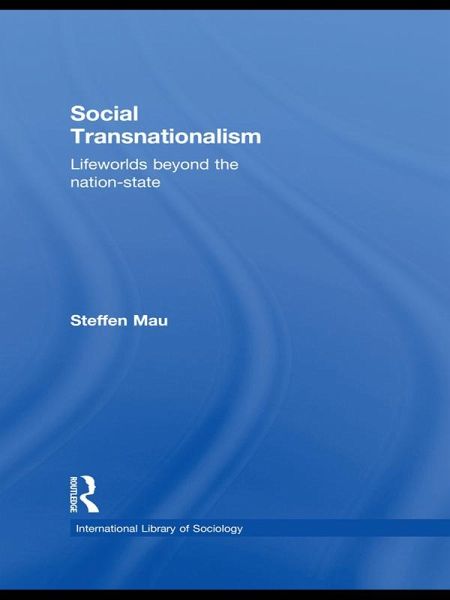
Social Transnationalism (eBook, PDF)
Lifeworlds Beyond The Nation-State
Versandkostenfrei!
Sofort per Download lieferbar
45,95 €
inkl. MwSt.
Weitere Ausgaben:

PAYBACK Punkte
23 °P sammeln!
In recent decades, the rise of world markets and the technological revolutions in transportation and communication have brought what was once distant and inaccessible within easy reach of the individual. The territorial and social closure that characterized nation-states is fading, and this is reflected not only in new forms of governance and economic globalization, but also in individual mobility and transnational transactions, affiliations and networks. Social Transnationalism explores new forms of cross-border interactions and mobility which have expanded across physical space by looking at...
In recent decades, the rise of world markets and the technological revolutions in transportation and communication have brought what was once distant and inaccessible within easy reach of the individual. The territorial and social closure that characterized nation-states is fading, and this is reflected not only in new forms of governance and economic globalization, but also in individual mobility and transnational transactions, affiliations and networks. Social Transnationalism explores new forms of cross-border interactions and mobility which have expanded across physical space by looking at the individual level. It asks whether we are dealing with unbridled movements and cross-border interactions which transform the lifeworlds of individuals fundamentally. Furthermore, it investigates whether, and to what degree, increases in the volume of transnational interactions weaken the individual citizen's bond to the nation-state as such, and to what extent citizens' national identities are being replaced or complemented by cosmopolitan ones
Dieser Download kann aus rechtlichen Gründen nur mit Rechnungsadresse in A, B, BG, CY, CZ, D, DK, EW, E, FIN, F, GR, HR, H, IRL, I, LT, L, LR, M, NL, PL, P, R, S, SLO, SK ausgeliefert werden.













